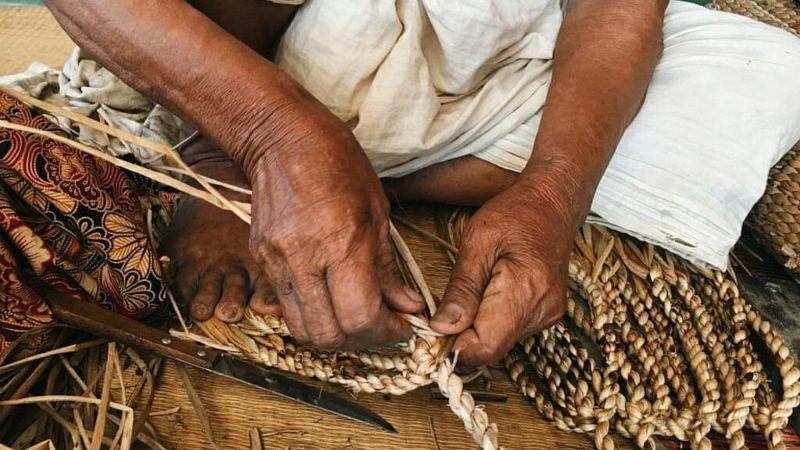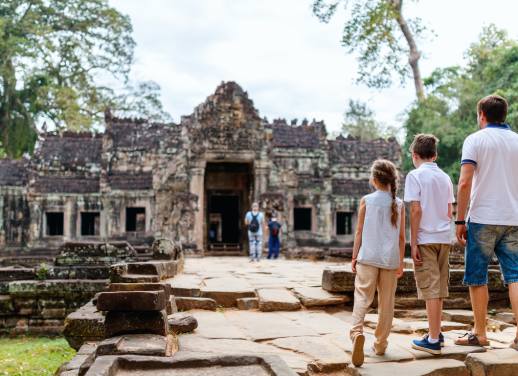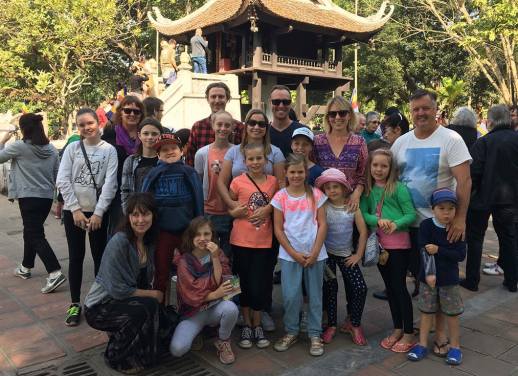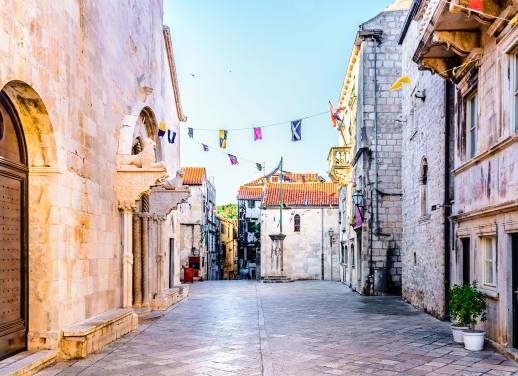On the outskirts of Siem Reap, not-for-profit organisation Rokhak is changing the lives of Cambodian women and helping the environment at the same time. We sat down with founder, Hor Sounsrors, to find out how invasive weeds can be used for good.
Looking out over Tonlé Sap lake in northwest Cambodia, you can see huge clumps of greenery dotting the water, floating between the stilt houses of Kompong Khleang. It looks pretty, but that greenery is actually water hyacinth, an invasive species from the upper Amazon Basin, half a world away – and it’s a huge ecological problem.
“When it grows, it grows thick,” says Hor Sounsrors, also known as ‘Sros’, who runs Cambodian not-for-profit Rokhak. “It means there’s no sunlight getting into the water, so the fish and other species below can’t get enough oxygen. In some places you can actually walk on it.”
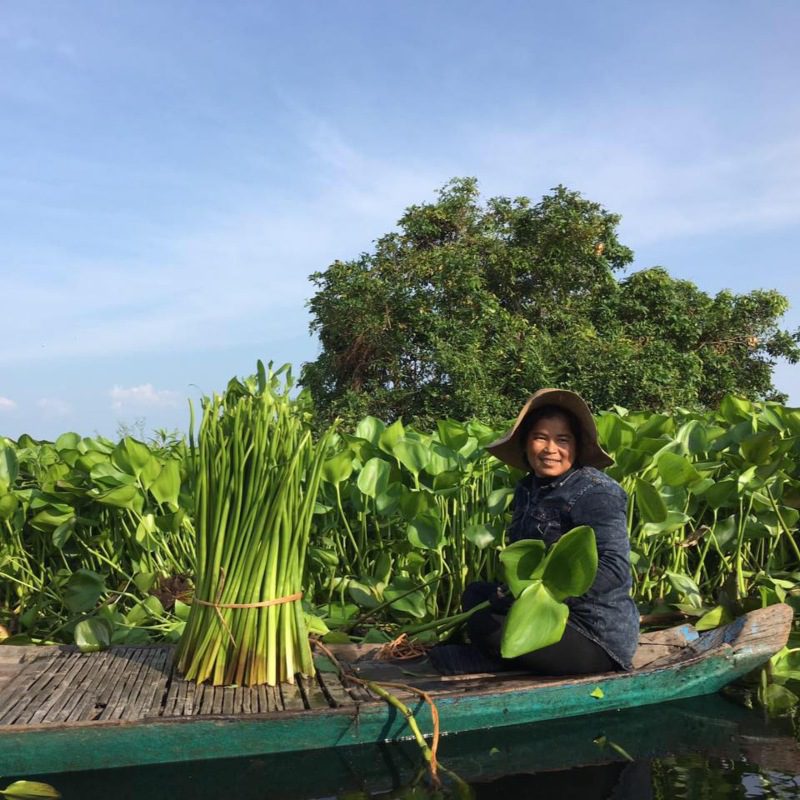
Turning pest into profit
Water hyacinth can double in size every two weeks. It’s a virulent pest, choking the waterways and blocking the passage of boats. But Sros founded Rokhak to tackle the problem in a unique way. The centre employs local Cambodian women to collect hyacinth from Tonlé Sap and the surrounding rivers, dry it out, steam it, and weave it into baskets, rugs and other handicrafts.
It’s a double win for local people: they’re helping the ecosystem breathe and creating valuable employment at the same time.
“Three years ago, I went to this village and found an old woman living in a tent – just a plastic bag stretched across as a roof,” Sros says. “But she was living next to all this water hyacinth. So we trained her to collect the plants, and then people started buying the stems from her, and now she earns a good living. She uses the profits to plant fruit and vegetables, which she can sell as well.”
Locals can collect up to 200 hyacinth stems at a time; they’re brought back to Rokhak, dried in the sun, then steamed over charcoal to deepen the colour and kill any bacteria. The stems are then carefully woven by hand, turning an ecological disaster into something useful – and best of all, valuable.
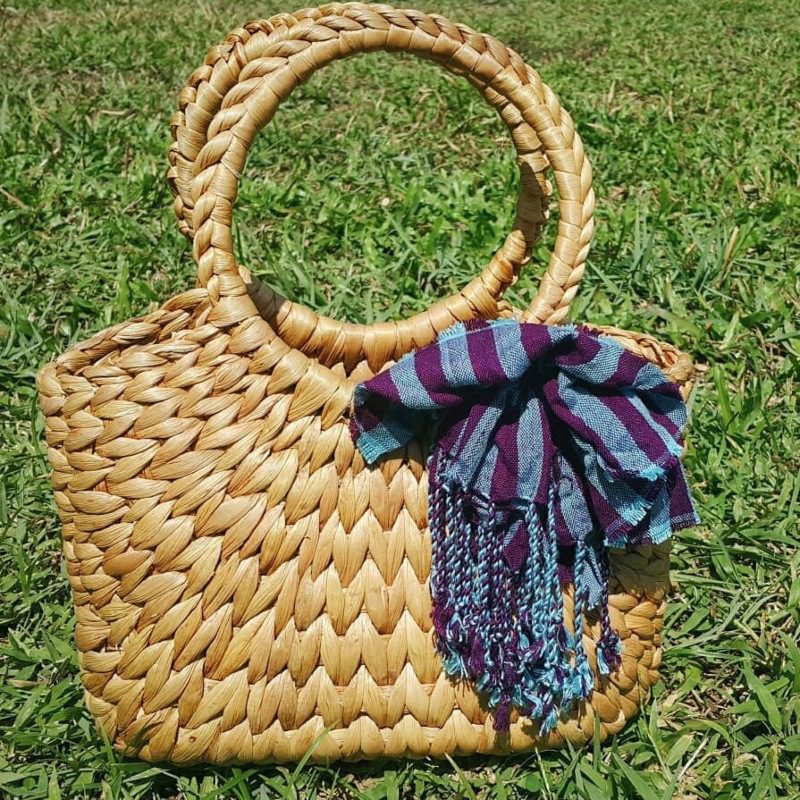
Empowering local women
Sros says she’s currently training 13 women to weave the water hyacinth, and Rokhak employs five more full-time in the workshop, producing products for local businesses in Siem Reap, or for guests that visit the centre.
Travellers can buy intricate rugs, beautiful bags and hand-woven plant baskets, and all the profits get funnelled back into the local community. Rokhak also runs workshops where visitors can practice their hyacinth-weaving skills.
“Travellers will get to make the small bowls themselves as a souvenir,” Sros says. “It’s really hands-on. We train them the same way we train women in the villages.”
This training has real economic value. It might take three artisans a few weeks to weave a single rug, but each rug can sell for up to $300 – more than most Cambodians see in a month.
Beyond its ecological impact, Rokhak changes the lives of local women. The centre’s real product, and its ongoing legacy, is employment and financial independence. It takes about two weeks to learn how to weave water hyacinth, but once you have that skill, you’ve got a trade for life.
This is a big deal in Cambodia, where the International Labor Organization estimates women spend a massively disproportionate amount of time on unpaid care work (about 188 minutes per day, compared to 18 minutes for men). It’s a gender-based inequality that has real impact on women’s lives, and livelihoods.
Looking to the future
“When you have no income, you have no voice,” Sros says. “Most women in the floating villages have five or six children. Many kids don’t go to school, and there’s always housework to do. I respect that so much, but if you ask these women what they do, they’ll say, ‘I don’t have a job. I’m just a housewife’.
“My mother always told me, ‘You have to be independent. You have to stand by yourself.’ These women still have to raise their children, of course, but now we can give them the skills to make a living and work from home.”
Sros began her career as an accountant, but teaching was always the dream. Having recently earned her Bachelor of Education, she says the ultimate goal for Rokhak is to expand the centre, train more women, and eventually launch educational programs for the local kids.
“I do some fun activities for the kids in my village,” Sros says. “Cooking, painting, drawing, and they get to experience the weaving as well. Running a not-for-profit is hard – the money to start Rokhak came from my own savings – but these women and these children keep me going.”
Have older kids of your own? Experience Rokhak for yourself on our Cambodia Family Holiday with Teenagers.

